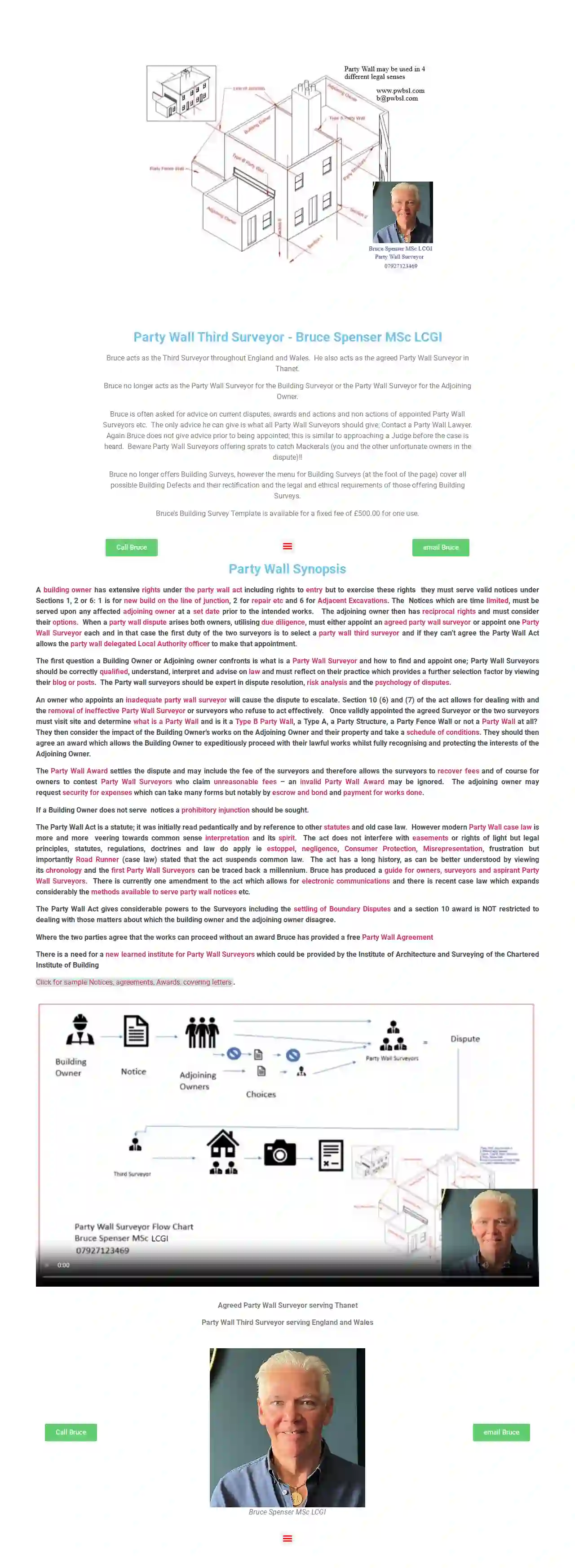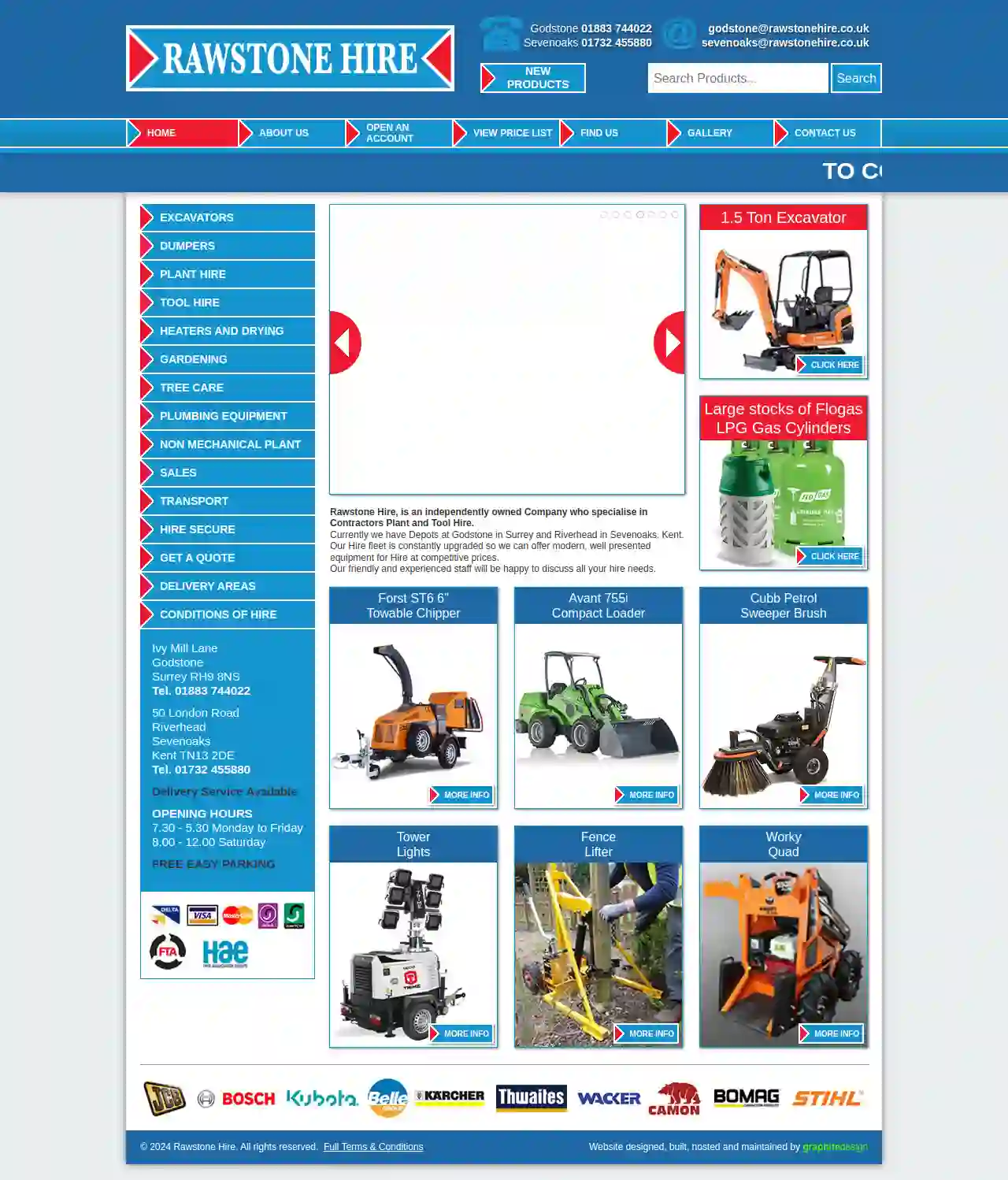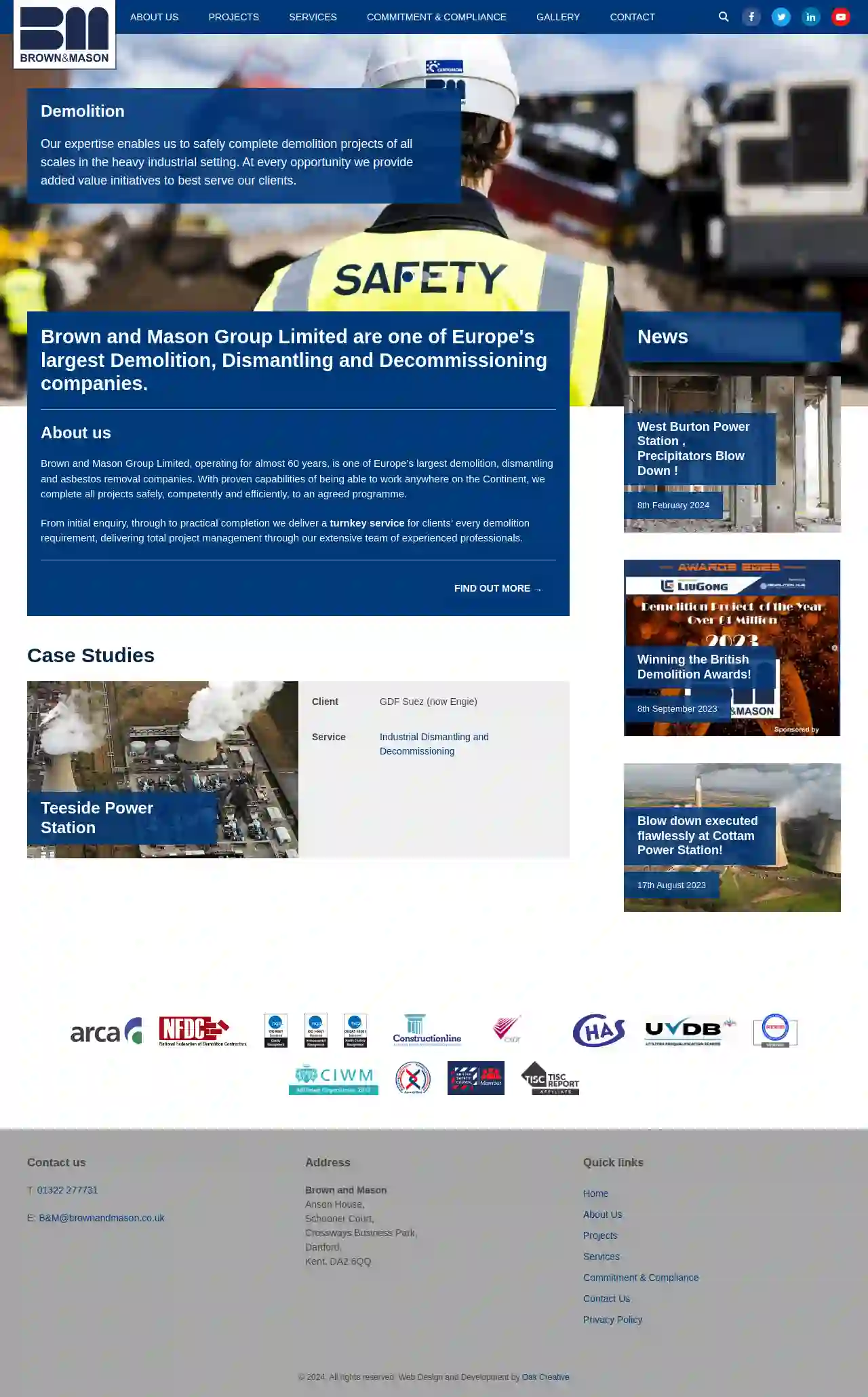Excavation Contractors Aylesford
Find Excavating Contractor in Aylesford
Get up to 3 Digging Contractors quotes for your project today! Compare profiles, reviews, accreditations, portfolio, etc... and choose the best deal.

Advanced Groundwork Specialist
Unit 50, The Oaks Business Park, Invica Way, Ramsgate, Kent, CT125FD, GBAGS Ltd - Advanced Groundwork Specialist AGS have been providing Thanet, Kent and London with reliable residential and commercial groundworks service for over 20 years. We offer a wealth of experience to all our clients and specialise in all aspects of groundworks. Our reputation in the local area for competitive prices and quality is second to none, putting the needs of our customers first at all times. We ensure that our customers not only get what they require, but also a high-level of service too. Whether you are after a new driveway, extension or your house underpinning, we will endeavour to complete the task in the given timescale with minimal distraction to you. Accreditations Like any reputable contractor, we are accredited by CHAS and CSCS. What Is CHAS? CHAS, or the Contractors Health and Safety Assessment Scheme as it is known in its proper form, is a significant scheme promoting the benefits of effective Health and Safety within industries and business. The CHAS certification or certificate for accreditation is meant for consultants and contractors who apply for work with private and public sector organisations. The Accreditation Certificate is valid for a period of 12 months from the last date of assessment stating as compliant. Maintaining the certification requires the supplier to be assessed on an annual basis. What Is CSCS? CSCS is the leading skills certification scheme within the UK construction industry. CSCS cards provide proof that individuals working on construction sites have the required training and qualifications for the type of work they carry out. The Scheme keeps a database of people working in construction who have achieved or are committed to achieving a recognised construction related qualification. Where we are accredited by these two organisations, you have peace of mind knowing that we are more than capable of carrying out the contract to an expected level of service and safety.
- Services
- Why Us?
- Accreditations
- Gallery
Get Quote
Bruce Spenser MSc LCGI | Party Wall Third Surveyor
4.8161 reviewsRamsgate, GBParty Wall Third Surveyor - Bruce Spenser MSc LCGI Bruce acts as the Third Surveyor throughout England and Wales. He also acts as the agreed Party Wall Surveyor in Thanet. Bruce no longer acts as the Party Wall Surveyor for the Building Surveyor or the Party Wall Surveyor for the Adjoining Owner. Expert Advice and Guidance Bruce is often asked for advice on current disputes, awards and actions and non-actions of appointed Party Wall Surveyors etc. The only advice he can give is what all Party Wall Surveyors should give; Contact a Party Wall Lawyer. Again Bruce does not give advice prior to being appointed; this is similar to approaching a Judge before the case is heard. Beware Party Wall Surveyors offering sprats to catch Mackerals (you and the other unfortunate owners in the dispute)!! Building Surveys Bruce no longer offers Building Surveys, however the menu for Building Surveys (at the foot of the page) cover all possible Building Defects and their rectification and the legal and ethical requirements of those offering Building Surveys. Bruce’s Building Survey Template is available for a fixed fee of £500.00 for one use. Contact Bruce Call Bruce
- Services
- Why Us?
- Gallery
Get Quote
Rawstone Hire
433 reviewsIvy Mill Lane, GodstoneSurrey, Ivy Mill LaneGodstoneSurrey, Godstone, RH9 8NS, GBRawstone Hire: Your Trusted Partner for Plant and Tool Hire Rawstone Hire is an independently owned company specializing in providing contractors with top-quality plant and tool hire solutions. We have depots strategically located in Godstone, Surrey, and Riverhead, Sevenoaks, Kent, ensuring convenient access to our extensive hire fleet. Our commitment to excellence is reflected in our constantly upgraded equipment, offering modern, well-presented tools and machinery at competitive prices. At Rawstone Hire, we understand the importance of reliable and efficient equipment for your projects. Our friendly and experienced team is dedicated to providing personalized service and expert advice to meet your specific hire needs. Whether you require excavators, dumpers, or a wide range of tools, we have the right equipment to support your success. We take pride in offering a comprehensive range of services, including: Plant Hire Tool Hire Heaters and Drying Equipment Gardening Equipment Tree Care Equipment Plumbing Equipment Non-Mechanical Plant Sales Transport Hire Secure Our commitment to customer satisfaction is evident in our dedication to providing a seamless experience. We offer convenient delivery services and flexible hire options to suit your project requirements. Contact us today to discuss your hire needs and let us help you achieve your project goals.
- Services
- Why Us?
- Gallery
Get Quote
Simon King Construction Ltd
51 reviewsSevenoaks, GBSimon King Construction Ltd is a successful firm of traditional high quality builders operating in Sevenoaks and the surrounding area. As home extension and re-modelling specialists, we bring together a wealth of experience and expertise on every size of project, united with strong customer-focused principles. Established in 1986, Simon King prides itself on delivering on its promises, a fact testified over the years by many satisfied customers. Happy to work with your own architect or we can recommend skilled local architects for you to consider. From a simple rear extension to a complete re-build, Simon King will give your project the care and attention it needs. If you are looking for expert builders in Sevenoaks, look no further, please contact Simon King for more information on how we can help extend your home or with your construction project.
- Services
- Why Us?
- Gallery
Get Quote
Sevenoaks Environmental Consultancy Ltd
3.73 reviews145a Hastings Road, PemburyTunbridge Wells, Kent, Tunbridge Wells, TN2 4JU, GBGeo-Environmental Consultants and Geotechnical Engineers providing Site Investigation services across London and the South East Sevenoaks Environmental provide cost effective and bespoke environmental site assessment services to a broad range of Clients to support development projects including new build residential housing, commercial and industrial redevelopment, local authority schemes and brownfield regeneration. We specialise in site investigations for contaminated land assessment, remediation and foundation design to ensure compliance with planning & building control requirements as well as informing feasibility and due diligence. Our level of expertise in the industry and the broad range of services that we provide have resulted in our core business arising through returning Clients. We are based in Tunbridge Wells, Kent and whilst we typically work across the South East of England including London and the surrounding Home Counties we can also provide support nationwide. About Us Sevenoaks Environmental Consultancy was founded in 2002 by Damian Jones and we have been providing Geo-Environmental and Geotechnical Site Investigation services since. We have grown over the years to accommodate the increase in demand for these services and our team of experienced engineers and consultants provide advice and environmental solutions to a broad range of clients including Design and Build Contractors, Architects, Structural Engineers, Property Developers, Commercial companies and Local Authorities across the South East of the UK. Our core business revolves around contaminated land assessment to support planning, due diligence, project feasibility and development design. We also offer a number of other associated multi-disciplinary services that are often required in relation to development projects to help afford our Clients with continuity, cost efficiency and a one stop shop for their environmental assessment requirements. To discuss your project, please contact our team.
- Services
- Why Us?
- Gallery
Get Quote
Jack’s Excavation & Construction
532 reviewsHopatcong, 07843, GBWho We Are At Jack's Landscaping & Excavating, we not only focus on providing high quality lawn-care solutions, but additionally have been delivering these services at a very reasonable price for the last 10 years! At Jack's Excavation & Construction, we not only focus on providing high quality commercial & residential lawn-care / excavating solutions, but additionally strive to deliver these services at a very reasonable price for the last 11 years! Our services include: Retaining Wall Installation / Repair Drainage Installation / Repair Septic Installation / Repair Tree Stump Removal Land Clearing Foundation Installation / Repair Paver Installation / Repair Concrete Installation / Repair Utility Trenching Demolition Work Dirt & Debris Removal Sod Installation / Repair Mulching Planting Grass Seeding Asphalt Installation / Repair So Don't Hesitate To Call for a fREE estimate! or better yet, You can Conveniently Start the Estimate process By Clicking The Button Below! So Don't Hesitate To Call or book a fREE estimate!
- Services
- Why Us?
- Gallery
Get Quote
Brown & Mason
3.98 reviewsAnson House, Schooner Court, Crossways Business Park, Dartford, Kent., DA2 6QQ, GBAbout Brown and Mason Brown and Mason Group Limited was founded in 1961, when the Grandfather of several of the company’s current directors started out with just £400. Now, almost 60 years later, the Group has established itself as one of the largest industrial Decommissioning, Dismantling, Demolition and Asbestos removal companies in the world. With the proven ability to work anywhere on the globe, we complete all projects safely, competently and efficiently, to an agreed programme. Brown and Mason remains a family owned and run, private limited company. Our recent audited accounts show a turnover of £50 million, achieved by our directly employed workforce of over 300 individuals. From initial enquiry, through to practical completion, we deliver a turnkey service for clients’ every demolition requirement, delivering total project management through our extensive team of experienced professionals. During the course of the company’s history, the types of projects have been varied and have included: the removal of asbestos and total Decommissioning, Dismantling and Demolition of over 50 power stations; the demolition of the first multi-storey commercial building on the Paternoster Square development close to St Paul’s Cathedral in London; the asbestos removal and demolition of the former Department of Environment’s offices in Marsham Street, London (close to the Palace of Westminster). We have been involved with many other projects in varied markets including Nuclear power, Marine Decommissioning and we are one of the world’s leading specialists in the controlled explosive engineering sector. Brown and Mason Group Limited are long-standing members of the National Federation of Demolition Contractors (NFDC) and the Asbestos Removal Contractors Association (ARCA) and hold a full HSE asbestos removal license, for the removal of all types of asbestos. We hold many other accreditations which are all available to view on our accreditations page. Feel free to contact us to discuss your next project.
- Services
- Why Us?
- Accreditations
- Gallery
Get Quote
Secret Wartime Tunnels
4.6909 reviewsDover, GBEnglish Heritage: Exploring England's Rich History English Heritage is a charity dedicated to preserving and sharing England's rich history and heritage. We care for over 400 historic places, from ancient monuments to grand castles, offering visitors a glimpse into the past and a chance to connect with England's fascinating story. Our mission is to inspire people to explore, understand and care for England's past. We achieve this through a variety of initiatives, including: Providing access to our historic places for visitors to enjoy and learn from. Carrying out conservation and restoration work to protect our heritage for future generations. Developing educational programs and resources to engage people of all ages in history. Working with communities to ensure that our heritage is valued and celebrated. We believe that everyone should have the opportunity to experience and learn from England's history. We offer a range of programs and services to make our historic places accessible to all, including: Family-friendly events and activities Accessible facilities for visitors with disabilities Educational resources for schools and community groups Volunteer opportunities for those who want to get involved in preserving our heritage We are committed to being a responsible and sustainable organization. We are working to reduce our environmental impact and to ensure that our historic places are managed in a way that benefits both people and the environment. Join us on a journey through time and discover the wonders of England's past.
- Services
- Why Us?
- Gallery
Get Quote
Bully excavation
Dover, MA, GBAbout Bully Excavation David Van Tassell, the founder and operator of Bully Excavation, has always had a passion for all things mechanical. Growing up, he spent countless hours working on cars and in his grandfather's wood shop. As a teenager, he often tackled his own car repairs. Dave graduated from Northeastern University in 2007 with a Bachelor's degree in Mechanical Engineering. After working as an engineer for Pratt and Whitney, he went on to work at a small start-up company in South Boston. Dave's entrepreneurial spirit and strong work ethic have made Bully Excavation a successful company. Our Mission At Bully Excavation, our mission is to provide our clients with high-quality excavation services, cost-effective construction, and clear communication. We strive to build lasting relationships with our customers by consistently exceeding their expectations. Need help with an outdoor project? Don't hesitate to reach out to us! We're here to help you get started.
- Services
- Why Us?
- Our Team
- Testimonials
- Gallery
Get Quote
Pine Hill Excavation Inc.
Cape Neddick/York, Maine, York, GBAbout Pine Hill Excavation Pine Hill Excavation was established in 2004 by Dana Goldberg, a seasoned professional with over 40 years of experience in excavation, landscaping, and construction. Dana has been a resident of Southern Maine for most of his life and currently resides there with his wife and three children. Known for its reliability and expertise, Pine Hill Excavation has earned the trust of numerous major contractors and local residents throughout Southern Maine. We are your go-to choice for all your excavation and aggregate delivery needs. Our service area encompasses York, Ogunquit, Kittery, Wells, The Berwicks, Elliott, and Kennebunk.
- Services
- Why Us?
- Our Team
- Gallery
Get Quote
Over 13,059+ Excavation Businesses registered
Our excavation contractors operate in Aylesford and surrounding areas!
ExcavationHQ has curated and vetted Top Excavation Businesses near Aylesford. Find a top & reliable pro today.
Frequently Asked Questions About Excavation Contractors
- Utility Locates: Contact your utility companies to mark the locations of underground lines before excavation begins. This is usually a free service.
- Hand Digging: Excavate carefully by hand near marked utility lines to avoid damage.
- Potholing: Digging small test holes to expose and verify utility depths and locations.
- Safe Distances: Maintaining a safe distance between excavation equipment and marked utility lines.
- Vacuum Excavation: Using vacuum excavation techniques to expose utilities without digging, reducing the risk of damage.
- Topsoil Removal: Stripping the fertile topsoil layer from a site, often preserving it for landscaping.
- Trench Excavation: Digging long, narrow trenches for utilities (pipes, cables) or foundations.
- Basement Excavation: Removing earth to create a space for a basement beneath a structure.
- Pool Excavation: Digging a precise hole for installing a swimming pool.
- Roadway Excavation: Removing earth and preparing the ground for road construction.
- Demolition Excavation: Clearing debris and preparing the site after demolition.
- Channel Excavation: Creating channels for drainage or irrigation.
- Determine the Area: Measure the length and width of the area you want to fill. Multiply them to get the area in square feet (or meters).
- Determine the Depth: Measure the difference between the existing grade and the desired grade (how much you need to raise the ground). This is the depth of fill required.
- Calculate Volume: Multiply the area (step 1) by the depth (step 2) to get the volume in cubic feet (or meters).
- Account for Compaction: Fill dirt compacts when it settles, so add 10% to 25% to the calculated volume to account for compaction. The exact percentage depends on the type of fill material.
How do you protect utilities during excavation?
What are the different types of excavation?
What is the difference between topsoil and subsoil?
Topsoil: The uppermost layer, typically rich in organic matter, nutrients, and microorganisms. It's essential for plant growth and is often darker in color.
Subsoil: The layer beneath the topsoil, containing less organic matter and generally denser. It provides support for roots but is less fertile than topsoil.
During excavation, topsoil is often removed and preserved separately for later use in landscaping, while subsoil is typically used for backfilling or other less demanding applications.
How do I calculate how much dirt I need for fill?
How do you protect utilities during excavation?
- Utility Locates: Contact your utility companies to mark the locations of underground lines before excavation begins. This is usually a free service.
- Hand Digging: Excavate carefully by hand near marked utility lines to avoid damage.
- Potholing: Digging small test holes to expose and verify utility depths and locations.
- Safe Distances: Maintaining a safe distance between excavation equipment and marked utility lines.
- Vacuum Excavation: Using vacuum excavation techniques to expose utilities without digging, reducing the risk of damage.
What are the different types of excavation?
- Topsoil Removal: Stripping the fertile topsoil layer from a site, often preserving it for landscaping.
- Trench Excavation: Digging long, narrow trenches for utilities (pipes, cables) or foundations.
- Basement Excavation: Removing earth to create a space for a basement beneath a structure.
- Pool Excavation: Digging a precise hole for installing a swimming pool.
- Roadway Excavation: Removing earth and preparing the ground for road construction.
- Demolition Excavation: Clearing debris and preparing the site after demolition.
- Channel Excavation: Creating channels for drainage or irrigation.
What is the difference between topsoil and subsoil?
Topsoil: The uppermost layer, typically rich in organic matter, nutrients, and microorganisms. It's essential for plant growth and is often darker in color.
Subsoil: The layer beneath the topsoil, containing less organic matter and generally denser. It provides support for roots but is less fertile than topsoil.
During excavation, topsoil is often removed and preserved separately for later use in landscaping, while subsoil is typically used for backfilling or other less demanding applications.
How do I calculate how much dirt I need for fill?
- Determine the Area: Measure the length and width of the area you want to fill. Multiply them to get the area in square feet (or meters).
- Determine the Depth: Measure the difference between the existing grade and the desired grade (how much you need to raise the ground). This is the depth of fill required.
- Calculate Volume: Multiply the area (step 1) by the depth (step 2) to get the volume in cubic feet (or meters).
- Account for Compaction: Fill dirt compacts when it settles, so add 10% to 25% to the calculated volume to account for compaction. The exact percentage depends on the type of fill material.